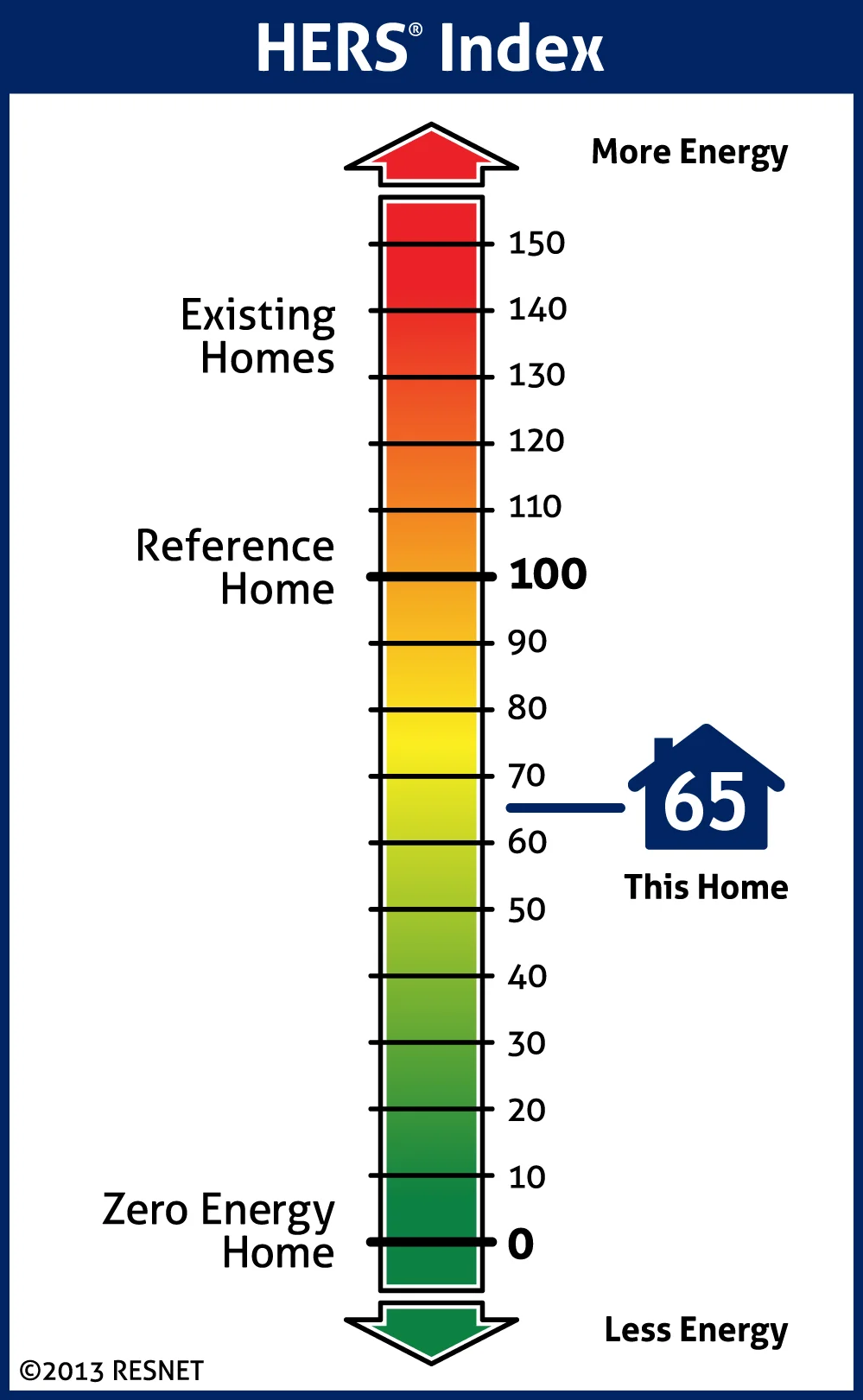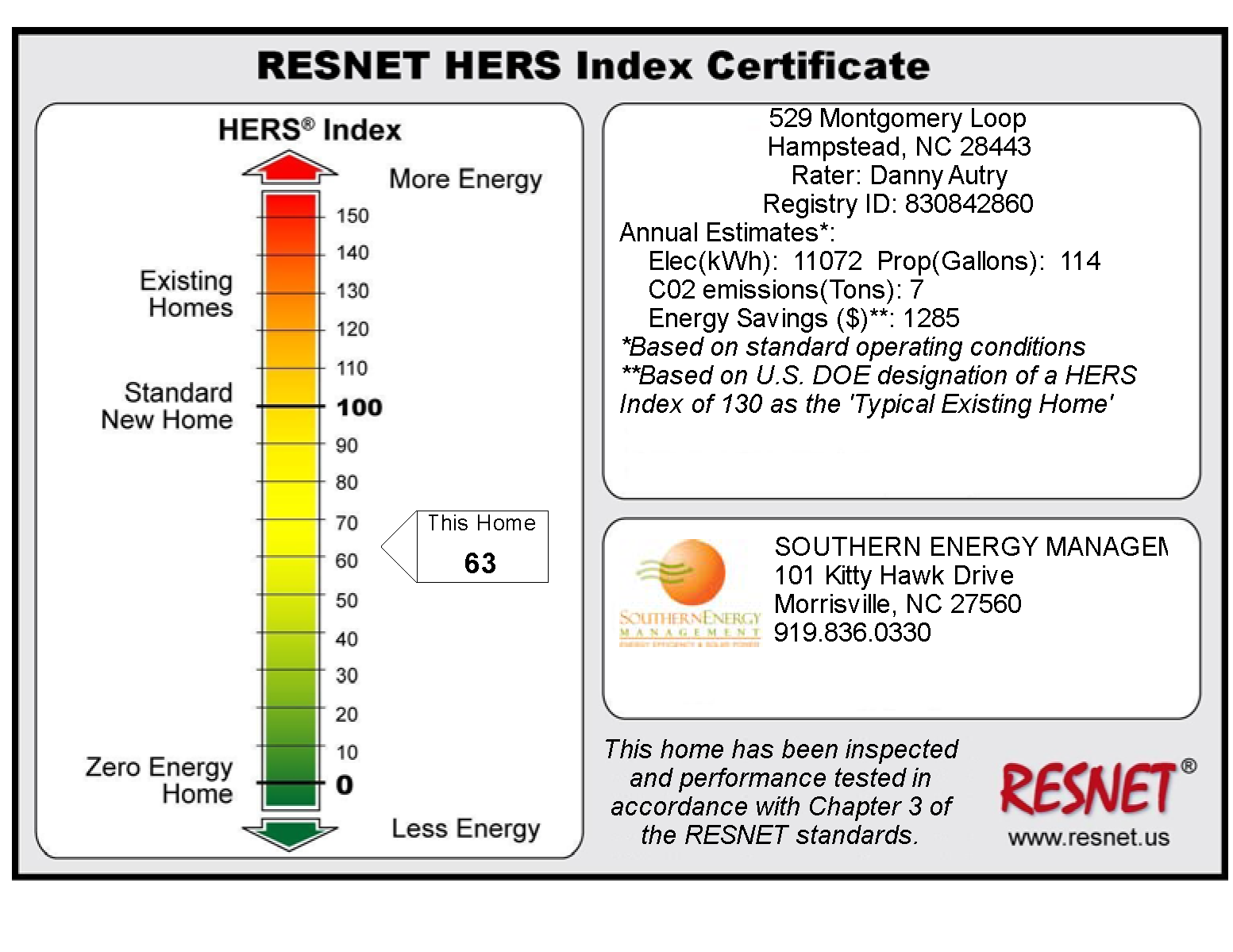What is a HERS score?
HERS is the industry standard for measuring a home’s energy efficiency. Developed by the Residential Energy Services Network (RESNET), HERS is short for Home Energy Rating System. Similar to Miles Per Gallon (MPG), it is a great selling point to attract more home buyers. Unlike MPG where a higher score is better, with HERS, a lower score is better for the buyer. The way it works is pretty simple. But, I know you’re wondering why does it matter and what does it even have to do with me?
Why a HERS Score is Important
Today, there are over 2 million homes that have a HERS rating. In 2016 alone, over 206,000 homes received a HERS-rating. Which means, if your home isn’t receiving one, there is a high chance that your competitor’s homes are.
Similar to golf, the lower the score, the better. For a HERS score, a lower score is very ideal because it means that your home is more energy efficient than your competitor’s home. The more energy efficient a home is, the lower the electricity bills are for the homeowner.
The Benefits of a HERS Score
Reduced energy bills are just one of the many benefits that new homeowners will experience with a low HERS score. Additional benefits include:
Understanding the true cost of home ownership;
Higher home resale value; and
Increased home comfort.
How Scores are Decided
Scores range on a scale of 0 to 150. The typical resale home averages a score of about 130, which means, this house is at least 30% less energy efficient than a 2006 IECC home. Therefore, the homeowner will experience higher energy bills than if they purchase a home with a HERS Index of 50.
To help put this score into perspective; if you were to build a home with a score of 50, the home you sell is 50% more energy efficient than a home built to the 2006 code and 80% more efficient than the average resale home.
In 2016, the Average HERS Index score was 61. This means that today, homes are 39% more energy efficient than in 2006 and 69% more energy efficient than in the 1970s.
A few variables that are assessed when assigning a HERS score include:
Exterior walls;
Floors over unconditioned spaces (like garages and cellars);
Ceilings and roofs;
Attics, foundations, and crawlspaces;
Windows and doors;
Vents and ductwork;
HVAC systems;
Water heating system; and
Performance testing including blower door and duct blaster testing.
Below is a real-world HERS certificate from one of our builds in June 2017 which shows you how well our new homes perform.
For a more in depth look, view the description of scores on RESNET’s website.
Written By: Jessica Latham of Southern Energy Management


